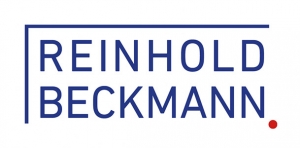Transparency register for lobbying in EU institutions
An important step towards increasing trust in political decisions
Since the end of 2020, there has been an agreement to introduce a mandatory transparency register for the European Parliament, the Council of the EU and the European Commission. This agreement goes back to a Proposal the Commission had already submitted in 2016.
On December 15, 2020, the Parliament, the Council and the Commission have now reached a final agreement on an Interinstitutional Agreement (IIA). The official signing and entry into force are planned for spring 2021.
Extension and new participation of the EU Council
The new Transparency Register will be managed by a secretariat in which the three institutions Parliament, Council and Commission will participate on an equal basis. To be registered, the applicants will have to comply with a code of conduct. Here, there was also a consensus to introduce stricter provisions on monitoring and investigations to ensure that effective action is also taken if a lobbyist does not comply with the code of conduct. The removal of registered lobbyists from the register is also defined as a possible sanction.
Mandatory registration of activities
The Transparency Register provides that interest representatives must register if they engage in the following activities:
- Meeting with significant decision-makers, organizations, and
- Participate in hearings and briefings, and
- Seeking access to institutions.
This includes activities that aim to influence decision-making processes or formulations or implementation of policies or legislation at the EU level. Furthermore, stakeholders must explain what interests and objectives they pursue and which clients they represent, as well as providing information about resources used for interest advocacy, especially sources of funding.
Associations and networks of agencies engaged in lobbying can voluntarily register if they choose to do so.
Some activities will remain possible without registration: (for example)
- spontaneous meetings,
- legal advice and
- activities of social partners, political parties, Intergovernmental Relations or Member State authorities.
Provisions for individual institutions
The European Comission: Members of the EU Commission may only meet stakeholders who are listed in the Transparency Register. Information on such meetings is published on the Europa website.
The European Parliament: Here, registration is a requirement for access to its facilities, for presentations at public hearings of parliamentary committees, or for participation in the work of intergroups or other unofficial grouping activities organized in the Parliament.
The EU Council: Again, an entry in the Transparency Register is required to gain access to its facilities, participation in thematic information and stakeholder meetings with the Secretary General and the Director General of the General Secretariat of the Council.
CONCLUSIONS:
Perhaps this initiative on EU level here would also be an occasion for the governing parties in the Federal Republic of Germany to think about the introduction of a corresponding transparency register in Berlin.
At present lobbyists of over 500 lobby organizations can freely go in and out without any registration or transparency in the Bundestag!
Agreements and rules who when how with whom why access receives keeps the Bundestag administration as before under lock and key: a – as I find – sustainably intolerable condition! The citizens of the Federal Republic of Germany are deserving of more transparency from their government.
This post is also available in: German


